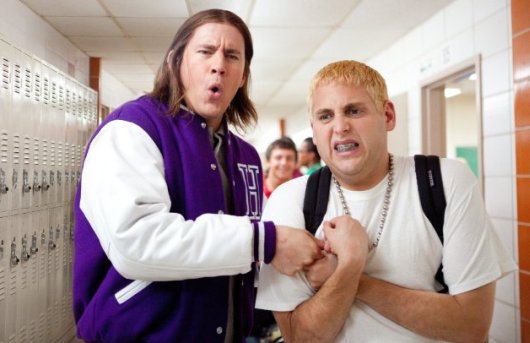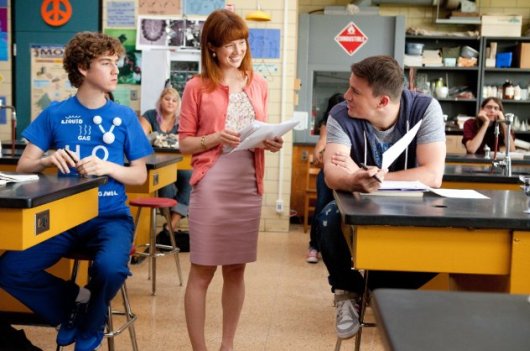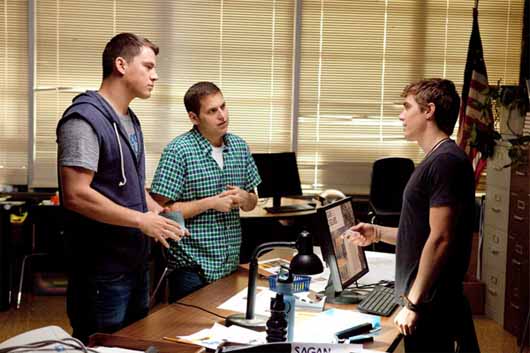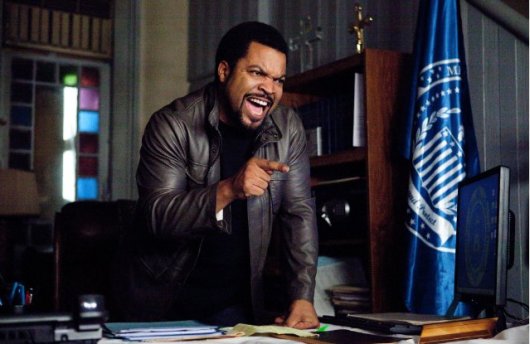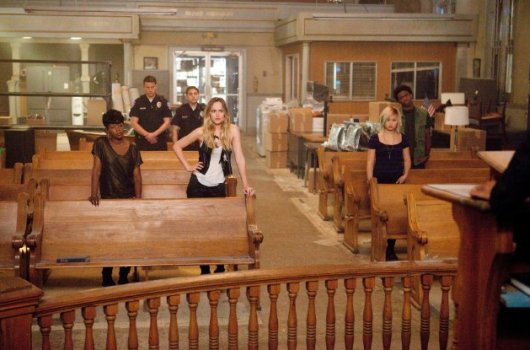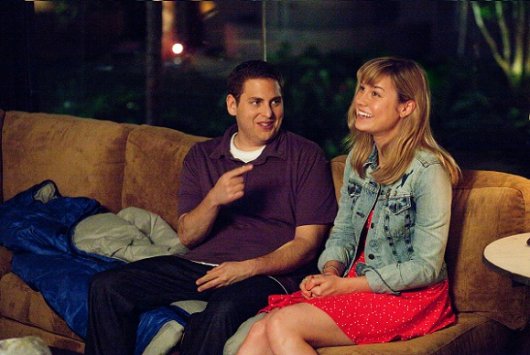 FILM
FILM In Which The Coen Brothers Enter The Studio System
 Tuesday, April 26, 2016 at 10:40AM
Tuesday, April 26, 2016 at 10:40AM 
Backstroke
by ALEX CARNEVALE
Hail, Caesar!
dir. Joel & Ethan Coen
106 minutes
 History becomes ancient history. When American people thought of the recent past in 1953, the cultural life of the previous fifty years had not quite absconded from them, principally because there was not too much of it. For Eddie Mannix (Josh Brolin) to manage his job as a movie executive, he only has to know five or six things, and once he knows them, he has plenty of time to genuflect as to whether he really does know them.
History becomes ancient history. When American people thought of the recent past in 1953, the cultural life of the previous fifty years had not quite absconded from them, principally because there was not too much of it. For Eddie Mannix (Josh Brolin) to manage his job as a movie executive, he only has to know five or six things, and once he knows them, he has plenty of time to genuflect as to whether he really does know them.
Hail, Caesar! is a kind of anti-nostalgia, pared down to its bare essentials. Scarlett Johansson has only two scenes in the movie as a kind of anti-Esther Williams, a Brazilian actress giggles through one scene like a jack-in-the-box, Tilda Swinton plays twin sister gossip columnists for a combined five minutes and that is it for women in Hail, Caesar! Hollywood during this period (and when you think of it, most others) was largely composed of the interlacing stories of male homosexuals and Jews fleeing Europe.

Esther Williams' movies are not half bad if you watch them today. A lot of times she portrayed the same role she played in life: a talented swimmer in a stage show at odds with the management. Williams' brilliance at marketing herself and her evident abilities as a performer are never touched on in Hail, Caesar!
Instead she is a foul-mouthed slut sleeping with a foreign, married director, not her first. Abandoned by the father of her baby, she has no other options, and so marries Jonah Hill after admiring his physique. Hill is in the movie for two minutes, and Scarlett only five more than that, so how they had made it on the poster moves beyond deceptive advertising into the realm of true evil.

But then, the male stars are just as vapid and sloppy in their art, except for Burt Gurney (Channing Tatum). The best part of Hail, Caesar! by far is an extensive song and dance routine about how there will be no women on a submarine the sailors are boarding in the morning. Tatum, who was recently so awful in The Hateful Eight, appears to be some kind of oscillating god here, and his singing and dancing is ten out of ten. Maybe in the future he could just not talk.

The rest of the movie sets that Josh Brolin strolls onto are shooting awful, satirical versions of failed projects from the period. Clooney is better at pretending to be a period actor than performing a modern role. His not-so-hidden homosexuality is a riff on Tony Curtis, but the vapidity of the character is not. Turning Tony Curtis, a Bronx Jew who was savagely beaten by his schizophrenic mother, served in the U.S. Navy and achieved success from the most meager circumstances imaginable into a spoiled, whimpering ditz is pretty low.

Clooney's character, Baird Whitlock, is abducted by a group of communists. The humor comes from the idea that they explain they have been actively plotting to include communist ideas in their Hollywood scripts in order to do their part for the movement. Isn't this ridiculous? the Coens crow. Except there were films which presented Russia as an idyllic utopia — after all, communists were always substantially better at explaining themselves than actually governing.

But the important thing is that Hail, Caesar! is funny, right? If something is funny, it doesn't matter who it makes fun of, or why, or whether it's true because that would mean, you know, like, actual research. The Coens aren't too good with that part of the process. Over time any director acquires a sinister envy and disgust for actors. Laurence Laurentz (Ralph Fiennes) even slaps around his young star for not being able to say, "Were that it twere so simple" in a convincing manner.
You feel the contempt for the performers in most scenes of Hail, Caesar! We rush so quickly from moment to moment as Brolin assuages the feelings and insecurities of all these people that you start to think of them not as individuals, but only as problems. Hail, Caesar! is a bunch of brilliant skits that explain all of the jokes for people who don't grasp the overly familiar subject of Hollywood satire. I think most of us understand it by now. William Goldman's book about one year on Broadway, The Season, once estimated that 80 percent of the subject matter in any given Broadway year concerned the theater itself. Today an endless parade of comic book movies saves us from the harsh reality of old.

When I do watch films from this period on TCM, I am not struck by any difference in quality, or even production values. The most obvious change between Hollywood's output today and then is the seriousness of its story choices. During this period, scripts explored non-trivial issues even in frivolous films, and they took their characters just as sincerely, even in goofy contexts. There was a chance of doing that here, but it vanishes as swiftly.
Josh Brolin comes home to dinner with his wife. He doesn't touch her, kiss her, or even look at her. He considers a job offer from Lockheed Martin that would have him working substantially less hours at a higher rate. "What should I do?" he asks his wife (Alison Pill) as he eats the food she has prepared for him, prompting her to comment on a decision that could completely alter the next decade in her own life and the lives of her children. "You know best," she tells him. Maybe I didn't get the joke.
Alex Carnevale is the editor of This Recording.

"The Caterpillar Workforce" - Guided By Voices (mp3)































